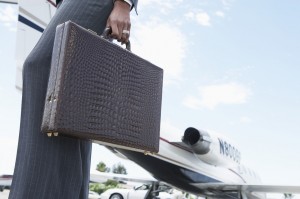Businessmen and businesswomen need a rental car when they are on business trip however most of them don’t even understand how car hire insurance works. It also means that they are putting their companies at risk of high insurance costs or even high penalty fees.
A survey has revealed that 92% of the business travellers don’t know that they are liable for their hire car was damaged or stolen even if it wasn’t their fault. They would be still liable for the first part of the claim i.e up to £1500 (excess amount). This also means that 92% of the people are leaving their company liable for up to £1500 when they rent a car for their business trip. It’s quite shocking, isn’t it?
Most of the time they just go for the cover that is available at the car rental desk which would cost their company £16 per day – it is quite expensive – while the would be able to purchase car hire excess insurance for only £2.99 per day.
The survey that was conducted amongst business travellers also revealed that:
- 17% of them was afraid of buying extra insurance at the time of the pick up at the car rental desk.
- 76% of business travellers didn’t even know that they could buy car hire excess insurance from excess insurance providers.
- 57% of them didn’t know that the extra insurance that they could buy at the car hire desk is much more expensive than car hire excess insurance.
- 8 out of 10 business travellers who purchase extra insurance at the car rental desk aren’t aware of that this insurance won’t cover the windows, tyres, roof and undercarriage.
- 90% of the business travellers usually don’t check the small print regarding the cost of lost car keys and short notice cancellation. A lost car key could cost them up to £300.
- 62% of the them didn’t know that you would need CDW and SLI (Supplement Liability Insurace) when you rent a car in the U.S
Companies can save serious money on car hire by purchasing annual car hire excess insurance for their business travellers. An annual car hire excess insurance would cost the same price as just 3 days extra insurance at the car rental desk. It’s definitely worth the money.
Source:http://www.breakingtravelnews.com/news/article/miost-business-travellers-dont-understand-car-hire-insurance/








